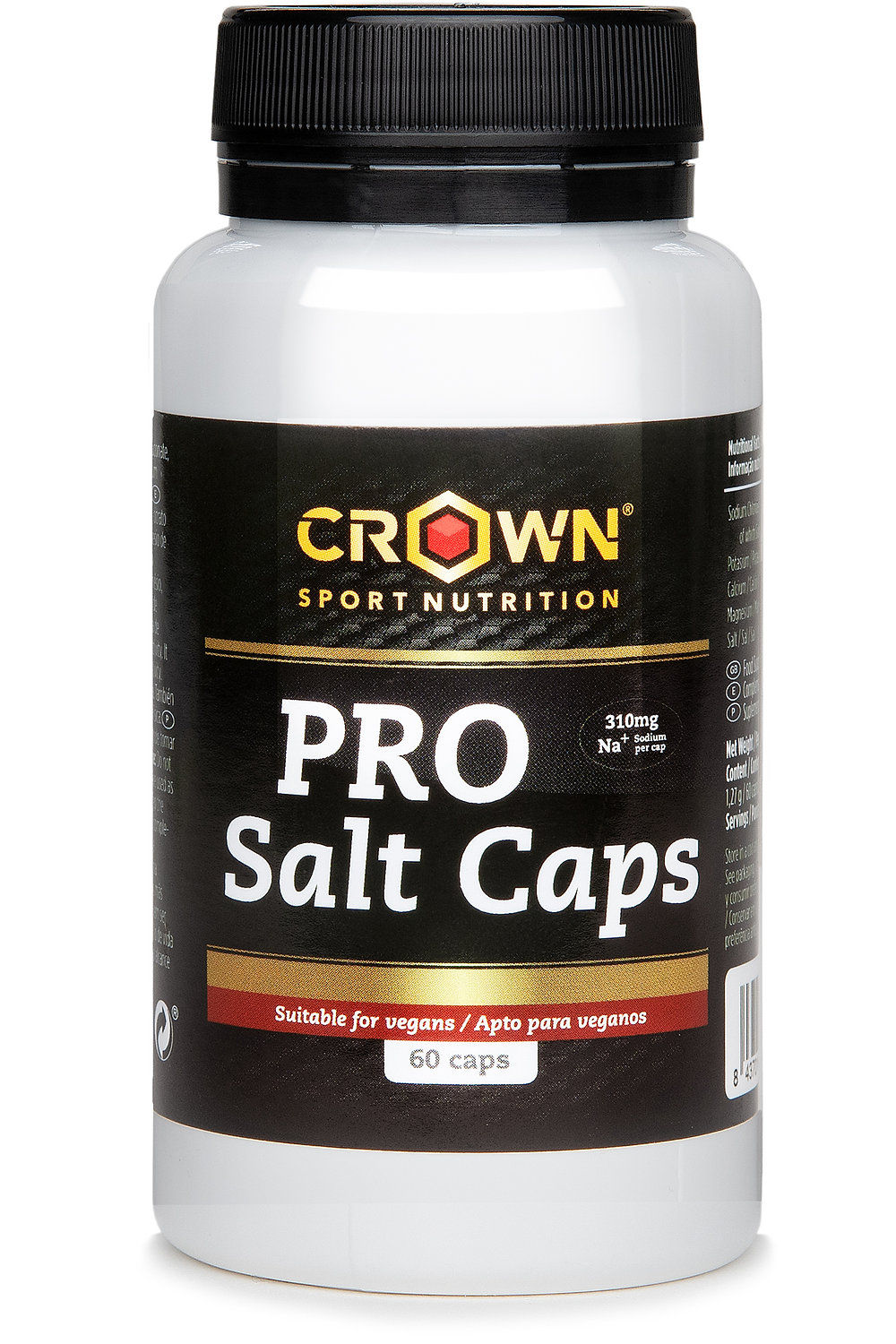Capsules based on highly bioavailable mineral salts. It provides all the electrolytes present in sweat (Sodium, Potassium, Chlorine, Calcium and Magnesium) so its intake favors their replacement, thus minimizing dehydration during exercise.
Bottle format 60 capsules.
One capsule provides:
- High amount of Sodium: 310 mg / capsule
- Extra contribution of Potassium, Calcium, Magnesium and Chlorine
- Optimizes hydration during sports practice
- In the form of highly assimilable organic salts (citrates and gluconate)
- Suitable for Vegans
- No allergens
Sodium is one of the most abundant minerals in the human body, reaching 0.15% of body weight. It is the most important mineral during sports practice because it is the one that we lose the most with sweat. This amount varies greatly between what is known as “sweet sweats” and “salty sweats” that is a function of the concentration of sodium lost with sweat, as it is difficult to individualize it, we take as a reference the average that, according to the latest research1, it is about 987 mg for every liter of sweat. Therefore, based on these values, for demanding and long-lasting workouts, it is not enough only with the intake of an isotonic drink to replace all the lost sodium and we must introduce an extra of it, in this case, in the form of capsules.
With the recommended intakes of approx. 500 ml / hour of Isodrink&Energy (295 mg) + 1 or 2 capsules of PRO Salt Caps (310 mg / cap.) The athlete has the security of covering the sodium needs lost in the training and / or competition. In addition, the consumption of sodium is essential to avoid hyponatremia, which is the decrease in the concentration of this mineral in the blood plasma, which facilitates dehydration.
The average losses of Potassium1 (234 mg / liter sweat) are perfectly compensated with the same combined intake of Isodrink & Energy (193 mg) and PRO Salt Caps (54 mg).
Highly assimilable organic sources: Potassium, Calcium and Magnesium are provided in the form of organic salts (Citrates and Gluconate respectively) whose bioavailability is greater than using inorganic salts such as oxides, carbonates, etc. usually used due to their apparently greater contribution of the mineral in question and its lower cost.
Crown Sport Pro Salt Caps (60 Caps)
3-5 working days by Chariot Enterprises Company Limited

